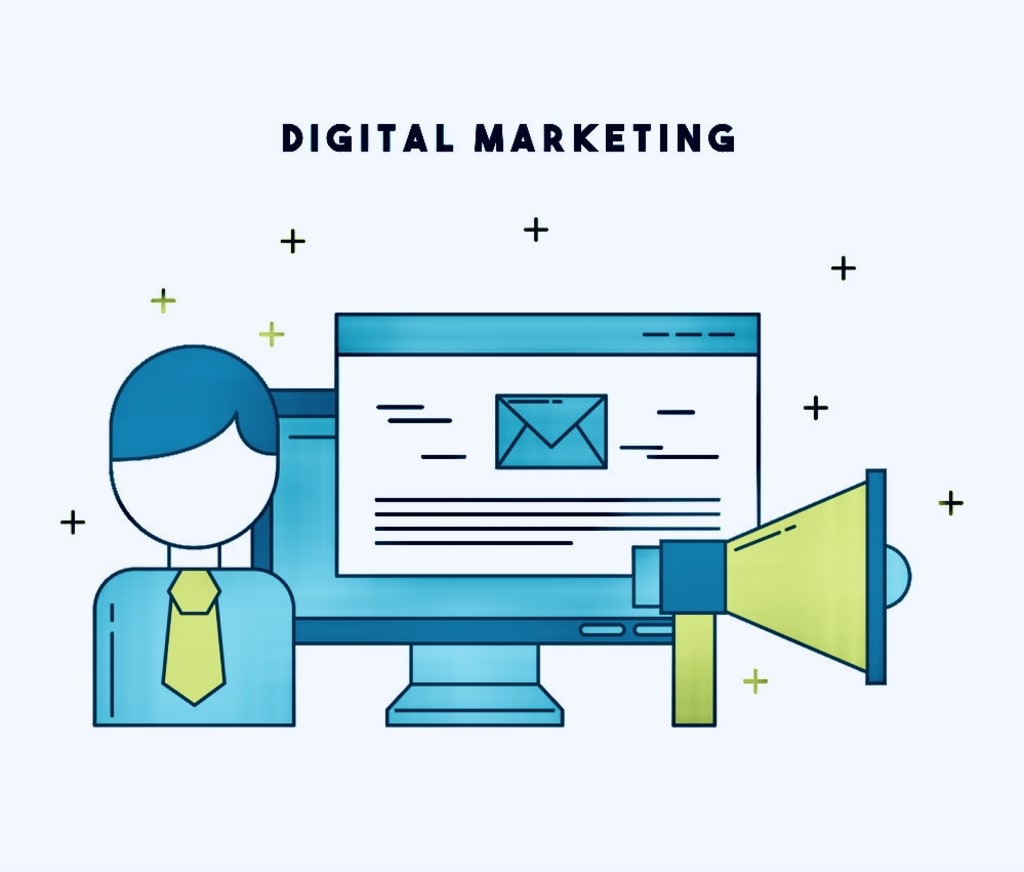Unlocking the Secrets of Successful Digital Marketing
Strategies, Tactics, and Tools for Building a Strong Online Presence

Introduction:
Online marketing has become an indispensable part of the modern business landscape. With more and more people spending time online, it is essential for businesses to have a strong online presence to reach and engage with their target audience. In this blog post, we'll explore how to be successful in online marketing and provide tips on how to make the most of this powerful tool.
Body:
Understand your target audience:
In the world of online marketing, understanding your target audience is essential for success. Without a clear understanding of who your audience is, it can be challenging to create effective marketing strategies that resonate with them. In this blog post, we'll explore why understanding your target audience is critical in online marketing and provide tips on how to gain insights into your audience's preferences, interests, and behavior.
Why Understanding Your Target Audience is Critical in Online Marketing
Tailored Marketing Strategies - Knowing your target audience helps you tailor your marketing strategies to meet their needs. By understanding their preferences, interests, and behavior, you can create marketing campaigns that resonate with them, leading to increased engagement and conversions.
Cost Savings - Understanding your target audience can save you money on marketing expenses. By focusing on specific groups of people who are more likely to convert, you can avoid wasting your marketing budget on those who are unlikely to engage with your brand.
Increased ROI - When you create marketing campaigns that are tailored to your target audience, you're more likely to see a higher return on investment (ROI). By reaching the right people with the right message, you're more likely to convert leads into customers.
Tips for Understanding Your Target Audience
Conduct Market Research - Conducting market research is essential to gaining insights into your target audience. Use surveys, focus groups, and customer feedback to learn about their preferences, interests, and behavior.
Analyze Website Analytics - Your website analytics can provide valuable insights into your audience's behavior. Analyze metrics such as bounce rates, time on site, and page views to better understand how your audience interacts with your website.
Use Social Media - Social media platforms are a great way to learn about your target audience. Use analytics tools to analyze your social media engagement and learn about your audience's interests and preferences.
Analyze Customer Data - Analyzing customer data such as demographics, purchasing history, and customer behavior can help you create more effective marketing campaigns.
Develop a comprehensive digital marketing plan:
In today's digital age, having a comprehensive digital marketing plan is essential for businesses to thrive. A well-designed digital marketing plan can help businesses connect with their target audience, increase brand awareness, and drive sales. In this blog post, we'll explore the key components of a comprehensive digital marketing plan and provide tips on how to develop one for your business.
Key Components of a Comprehensive Digital Marketing Plan
Define Your Goals - The first step in developing a comprehensive digital marketing plan is to define your goals. What do you hope to achieve with your digital marketing efforts? Do you want to increase website traffic, generate leads, or boost sales? Defining your goals will help you determine the tactics you need to employ to achieve them.
Know Your Target Audience - Understanding your target audience is critical in digital marketing. You need to know who your audience is, what they want, and how they engage with your brand. This information will help you create targeted marketing campaigns that resonate with them.
Develop a Content Strategy - Content is king in digital marketing. Develop a content strategy that includes blog posts, social media posts, videos, and other content types that align with your goals and target audience.
Choose the Right Channels - There are numerous digital marketing channels available, including social media, email marketing, paid advertising, and search engine optimization (SEO). Choose the channels that align with your goals and target audience.
Create a Budget - Developing a comprehensive digital marketing plan requires a budget. Determine how much you're willing to spend on each channel and allocate your budget accordingly.
Measure and Analyze Results - Measuring and analyzing your digital marketing efforts is critical to understanding what's working and what's not. Use analytics tools to track your website traffic, social media engagement, and other key metrics to determine the success of your campaigns.
Tips for Developing a Comprehensive Digital Marketing Plan
Research Your Competition - Researching your competition can help you gain insights into their digital marketing strategies. Use this information to identify opportunities and create a plan that sets you apart from the competition.
Stay Up to Date - Digital marketing is constantly evolving. Stay up to date with the latest trends and best practices to ensure your campaigns are effective.
Hire a Digital Marketing Agency - If you don't have the expertise or resources to develop a comprehensive digital marketing plan, consider hiring a digital marketing agency. They can help you develop and execute a plan that drives results.
Your online presence is your business's digital storefront. Make sure it is attractive, easy to navigate, and informative. Optimize your website for search engines and ensure that it is mobile-friendly. Consistently produce high-quality content to engage and retain your audience.
Leverage social media: Social media platforms are powerful tools for online marketing. Choose the platforms that are most relevant to your business and audience, and create engaging content that resonates with them. Use social media to build relationships with your customers, respond to their feedback, and promote your products or services.
Invest in paid advertising: Paid advertising can help you reach a wider audience and drive more traffic to your website. Consider using pay-per-click (PPC) advertising on platforms such as Google Ads and Facebook Ads. However, make sure you carefully target your ads to avoid wasting your marketing budget.
Measure and analyze your results: Effective online marketing requires continuous improvement. Use analytics tools to measure your marketing campaigns' effectiveness, track your progress towards your goals, and identify areas for improvement. Use this data to refine your marketing strategies and optimize your results.
Conclusion:
Online marketing is a dynamic and constantly evolving field. To be successful, you need to stay up-to-date with the latest trends and best practices. By understanding your target audience, developing a comprehensive digital marketing plan, building a strong online presence, leveraging social media, investing in paid advertising, and measuring and analyzing your results, you'll be well on your way to online marketing success. So, go ahead and put these tips into practice – your business will thank you for it!






Comments
There are no comments for this story
Be the first to respond and start the conversation.